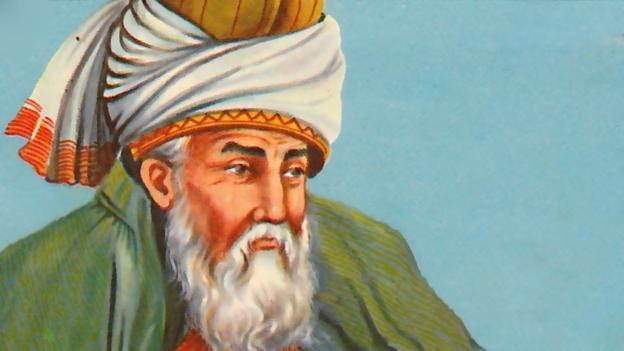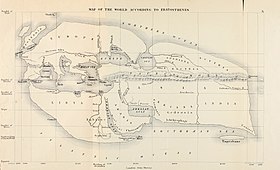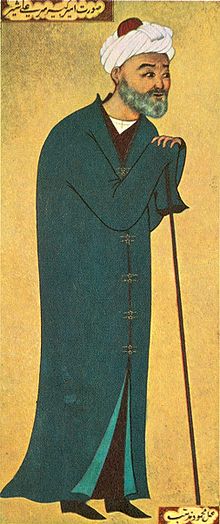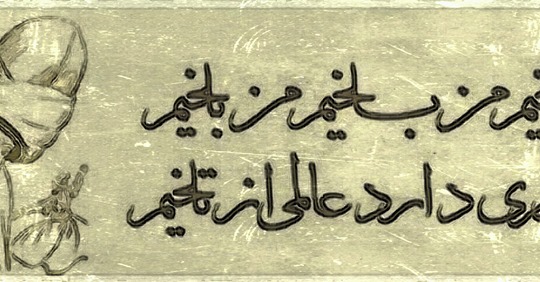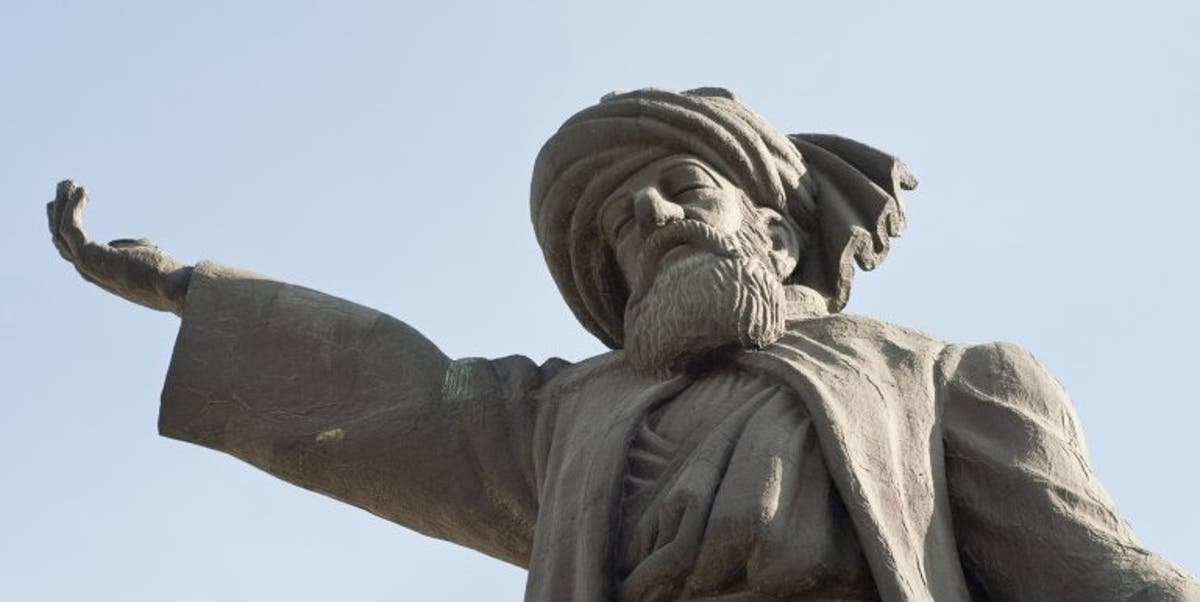Since this unintelligent debate about #Mawlana´s origin goes on, I feel forced to weigh in and start a #Thread about #Rumi´s origin, the nature of the Persianate #civilization, what labels he used to describe himself and by extension other classical figures of our shared heritage
We must start by pointing out how people in the Persianspeakers in general identify themselves. As you may already know, the Persianate world transcended tribalism a millennia ago and became a highly urban civilization. Therefore Persianspeakers primarily identify with the...
the regions or cities they live in. This is why Mawlana is called "Balkhi" and "Rumi" (Roman), because we Persianspeakers consider that regionalism in general beats ethnicity. Just look at other great figures: Rudaki, Hafiz Shirazi, Jami, Khwarezmi,.. all of them are named...
after the name of the regions they were born in or the jobs themselves or they parents had: "Khayyam" means "he who sells tents", "Attar" means "perfume-seller" and so on. Therefore historically Persianspeakers in the Islamic age had a more sophisticated identities than other...
neighboring peoples such as Turks (before becoming Persianspeakers) or Pashtuns, who despite being settled and urbanized to a degree, are probably one of the very few peoples in the world who still take pride in their tribal culture and identity.
Now let´s focus on Mawlana: Mawlana was born in one of the great cities of #Khorasan in the 13th century: #Balkh Both his parents were ethnic Persians. The name of Central Asian Persians now is "Tajik", which means "non-Turk" or "Iranian".
This is something important to point out: Khorasan is not a separate entity of the cultural land known as " #Iran". Khorasan and Iran are the same thing. One can not exist without the other. Also important to point out that Iran and Aryana are also the same things.
Aryana is the name Greeks gave to "Aryanam Vaejaeh", the original land of the Aryans in Central Asia. This name evolved over centuries and became "Eranshahr" during the Sassanian empire.
During most of his life #Rumi used mostly to identify with the lands of "Iran", "Khorasan", his Islamic faith and his #Persian language. These are the words he used in his own poems. This is one of his poems where he says the following thing about Khorasan:
"I am not of the East, nor of the West, nor of the land, nor of the sea;
I am not of Nature’s mint, nor of the circling heavens.
I am not of India, nor of China, nor of Bulgaria, nor of Saqsín;
I am not of the kingdom of Irãqain, nor of the country of Khorãsãn."
I am not of Nature’s mint, nor of the circling heavens.
I am not of India, nor of China, nor of Bulgaria, nor of Saqsín;
I am not of the kingdom of Irãqain, nor of the country of Khorãsãn."
The name of this poem is "Who am I" and you may find it right here in its English version: https://www.stillnessspeaks.com/rumi_who_am_i_poem/
Therefore despite rejecting tribalism, Rumi clearly stated that he knew about #Khorasan although he obviously said nothing about #Afghanistan
This is a very interesting table that shows what names some of the classical figures of the Persianate civilization used to describe their own land and language. As you can see they mostly used Iran, Khorasan and Parsi, including Khorasani such as Sistani, Anvari and Rumi.
The nature of the #Persianate civilization is clearly cosmopolitan and open to all regardless ethnicity. Anyone can be a Persianspeaker and anyone can promote it. Timurids, Ghaznavids, Durranis, Mughals, etc were non Iranian dynasties yet they promoted Persian culture.
Beydil, Navai or Muhammad Iqbal were not ethnic Iranians either and we still love them and admire their amazing contributions to Persian language and the Persianate civilization.
Unfortunately all this changed with the rise of #nationalism and the nation-state. Nation-states are exclusive and intolerant. Artificial borders clearly class with the borderless and ethnic neutrality of the Persianate culture.
Since the nature of our civ has always been open to all, we must reject nationalist intolerance while at the same time acknowledge the cultural, social, political and ethnic context where our civ evolved in the last millennia, which was a mix of Iranian, Turkic and Indic cultures
Therefore putting modern nationalist labels from failed states on historical figures is absurd and most be rejected. Calling to Mawlana or Ibn Sina "Afghan" just because they were born within the borders of the modern Afghan nation-state is dumb to say it softly. Its like...
that Ahmad Shah Durrani or Khushal Khan, two important "Afghan" figures, were Pakistanis because they were born in modern Pakistan. Or it is like calling to Biruni or Khwarezmi "Soviets" when the historical land of Khwarezm was ruled by the URSS. It is an absurd "logic".
This is what Rumi called to himself (ethnically speaking):
“من ساعتی ترکی شوم یک لحظه تاجیکی شوم”
"I shall become a #Turk for an hour, and a #Tajik for a moment". From Divan-e Shams Tabrizi.
Thanks to @Ramin2105 for sharing this.
“من ساعتی ترکی شوم یک لحظه تاجیکی شوم”
"I shall become a #Turk for an hour, and a #Tajik for a moment". From Divan-e Shams Tabrizi.
Thanks to @Ramin2105 for sharing this.
Sorry for the typos BTW but I wrote this thread too fast. ;)
This is not the first time Afghanistan, Iran and Turkey clash over this topic. Five years ago happened too. This is a short interview in Persian language by Partu Naderi in Kabul. Very interesting.
"My roaring nostalgic cry echoes
From the gate of #Rum to #Balkh*.
My origin never forgets its roots,
You're my Shams, you're my #God."
-Mawlâna
نعرۀ های و هوی من ازدر روم تا به بلخ
اصل کجا خطا کند شمس من و خدای من
-مولانای بلخ و روم
From the gate of #Rum to #Balkh*.
My origin never forgets its roots,
You're my Shams, you're my #God."
-Mawlâna
نعرۀ های و هوی من ازدر روم تا به بلخ
اصل کجا خطا کند شمس من و خدای من
-مولانای بلخ و روم
Here Mawlâna reminds us his travel across #Khorasan with his father and family as a refugee fleeing the Mongol hordes:
"O father,
If you are in #Balkh,
move on towards #Baghdad.
So you can be as faraway as possible
from the cities of #Merv
and #Herat"
"O father,
If you are in #Balkh,
move on towards #Baghdad.
So you can be as faraway as possible
from the cities of #Merv
and #Herat"
Same in #Persian:
چون تو در بلخی روان شو سوی بغداد ای پدر
تا به هر دم دورتر باشی ز مرو و از هری
-مولانای بلخ و روم
چون تو در بلخی روان شو سوی بغداد ای پدر
تا به هر دم دورتر باشی ز مرو و از هری
-مولانای بلخ و روم
Rumi's Divan ~ Ghazal1949
"Who is an Anatolian Turk?
Who is a Persian Balkhi?
Who is a black Zangi?
Who is a white Rumi?
Where did I come from?
Where did all this poetry come from?
Yet somehow,
these poems are breathed into me,
and all these verses pouring out of me."
"Who is an Anatolian Turk?
Who is a Persian Balkhi?
Who is a black Zangi?
Who is a white Rumi?
Where did I come from?
Where did all this poetry come from?
Yet somehow,
these poems are breathed into me,
and all these verses pouring out of me."
Selected Verses from Rumi's Masnavi ~ Book 2
"Speak #Farsi though #Arabic is more pleasant.
#Love speaks a hundred different #languages!"
مثنوی معنوی - دفتر دوم
پارسی گو گرچه تازی خوشتر است
عشق را خود صد زبان دیگر است
"Speak #Farsi though #Arabic is more pleasant.
#Love speaks a hundred different #languages!"
مثنوی معنوی - دفتر دوم
پارسی گو گرچه تازی خوشتر است
عشق را خود صد زبان دیگر است
#Mawlana was very proud to be a #Persianspeaker.
Selected Verses from Rumi's Divan ~ Ghazal/Ode 2561
" #Muslims! Muslims!
I speak the #Farsi #Language
for in the gathering of the masses,
it's not fair eating all that #sugar
all alone by myself!"
Selected Verses from Rumi's Divan ~ Ghazal/Ode 2561
" #Muslims! Muslims!
I speak the #Farsi #Language
for in the gathering of the masses,
it's not fair eating all that #sugar
all alone by myself!"
غزل شمارهٔ ۲۵۶۱
مسلمانان مسلمانان زبان پارسی گویم
که نبود شرط درجمعی شکرخوردن به تنهایی
مسلمانان مسلمانان زبان پارسی گویم
که نبود شرط درجمعی شکرخوردن به تنهایی
Selected Verses from Rumi's Divan ~ Ghazal/Ode 2532
If I say Your name in Farsi,
Arabic starts pleading with me!
If I praise You in Arabic,
Farsi starts complaining to me!
غزل شمارهٔ ۲۵۳۲
چو نامت پارسی گویم کند تازی مرا لابه
چو تازی وصف تو گویم برآرد پارسی زاری
If I say Your name in Farsi,
Arabic starts pleading with me!
If I praise You in Arabic,
Farsi starts complaining to me!
غزل شمارهٔ ۲۵۳۲
چو نامت پارسی گویم کند تازی مرا لابه
چو تازی وصف تو گویم برآرد پارسی زاری
Selected Verses from Rumi's Divan ~ Ghazal/Ode 2502
"As I kept speaking in #Arabic,
he whispered in my ear in #Farsi:
"Have I done something wrong
that you keep ignoring me?"
غزل شمارهٔ ۲۵۰۲
چو من تازی همیگویم به گوشم پارسی گوید
مگر بدخدمتی کردم که رو این سو نمیآری
"As I kept speaking in #Arabic,
he whispered in my ear in #Farsi:
"Have I done something wrong
that you keep ignoring me?"
غزل شمارهٔ ۲۵۰۲
چو من تازی همیگویم به گوشم پارسی گوید
مگر بدخدمتی کردم که رو این سو نمیآری
I am not from anything, A poem by Rumi, Molana Jalaiddin

 Read on Twitter
Read on Twitter